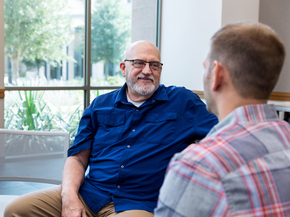
Supportive Oncology for Cancer Patients

Supportive Oncology for Cancer Patients
Hope, Healing, and Support Every Step of the Way
Supportive oncology is an integral part of the St. Luke's Cancer Institute philosophy that healing comes from caring for the whole person, not just the disease.
You can count on a team of experts who will work alongside your physicians to help you and your family be as strong and stable as possible during your cancer diagnosis, treatment and beyond.

Because cancer touches nearly every aspect of your life, we focus on every aspect of your care.
Supportive Oncology Services

Financial Advocacy
Helping you address financial concerns and relieve stress.

Integrative Medicine
Therapies such as acupuncture, and massage can empower you in healing, improving treatment side effects, and promoting overall well-being.

Mind-Body Wellness
Mindfulness-based interventions can decrease cancer-related emotional distress, fatigue, pain, and nausea while improving sleep and an overall sense of well-being.

Nutrition Services
Helping you improve your health through evidence-based nutrition education and counseling during and after cancer treatment.

Psychiatry
Providing support throughout your cancer journey and improve your quality of life.

Rehabilitation
Helping you stay as independent and productive as possible before, during, and after cancer treatments.

Spiritual Care
Our professional chaplains offer listening and support at any time during your diagnosis and treatment, regardless of your spiritual or religious beliefs.

Support and Counseling
Counseling and support to help reduce stress for you, your family and your loved ones throughout your cancer experience.
